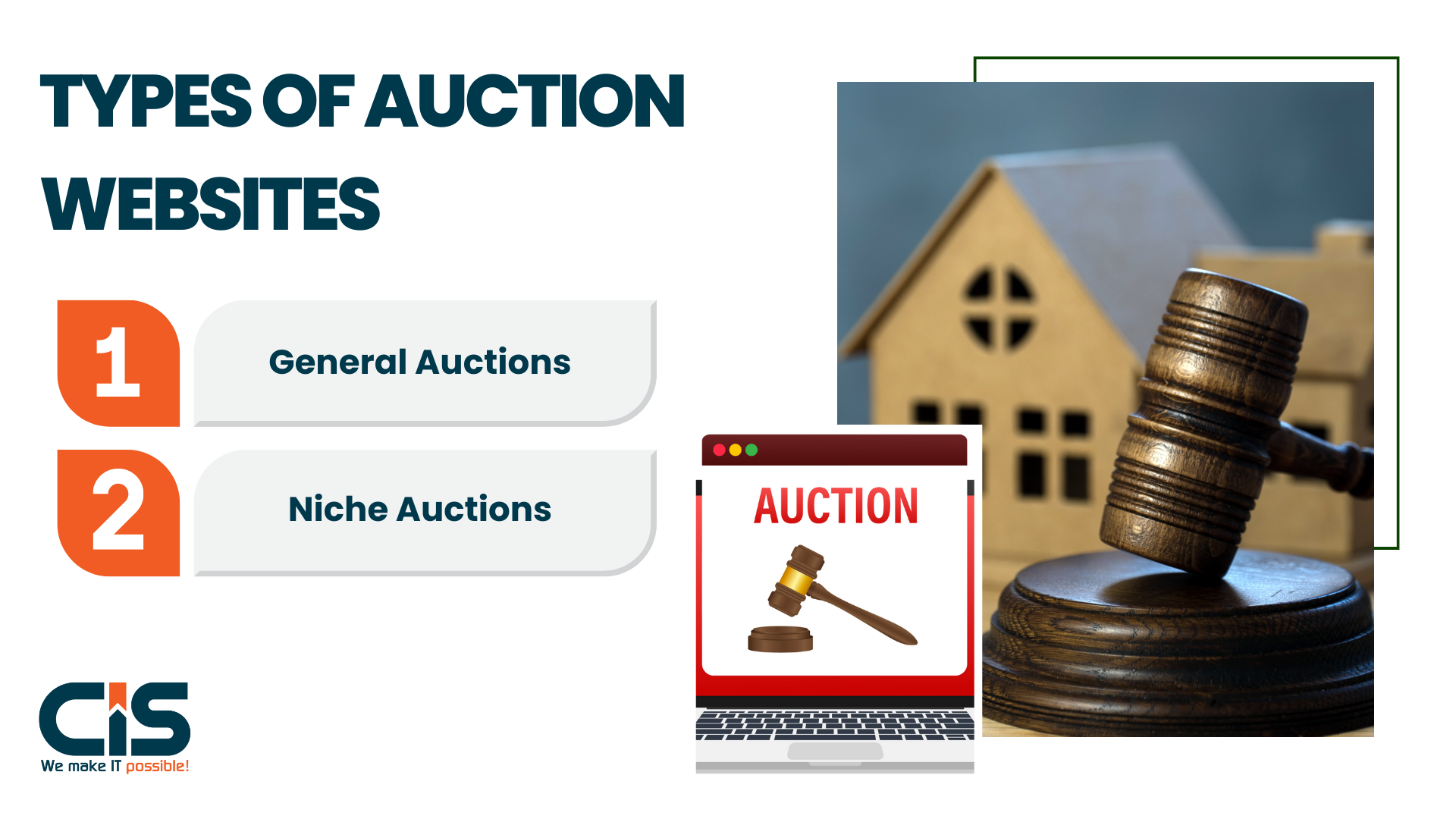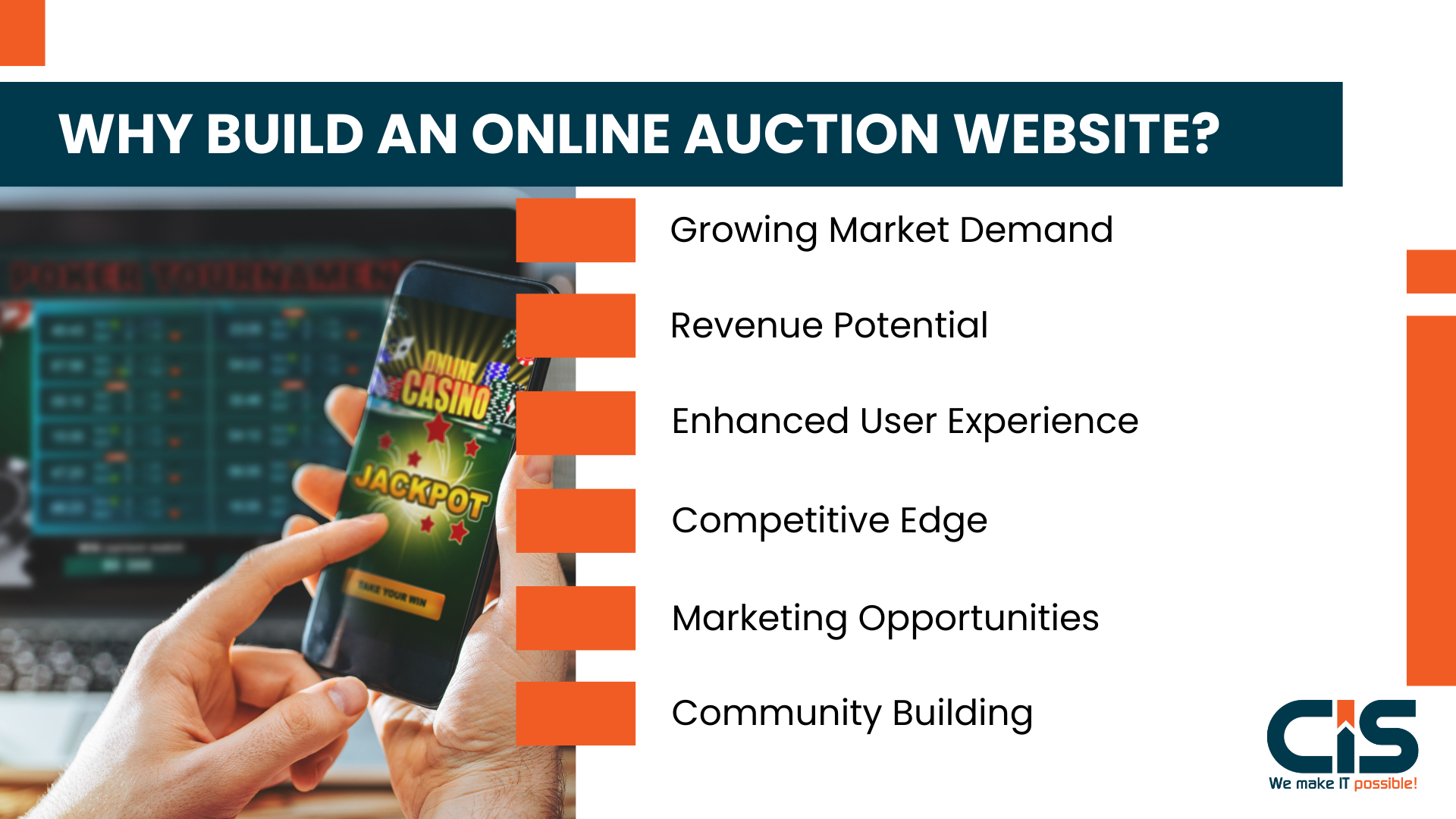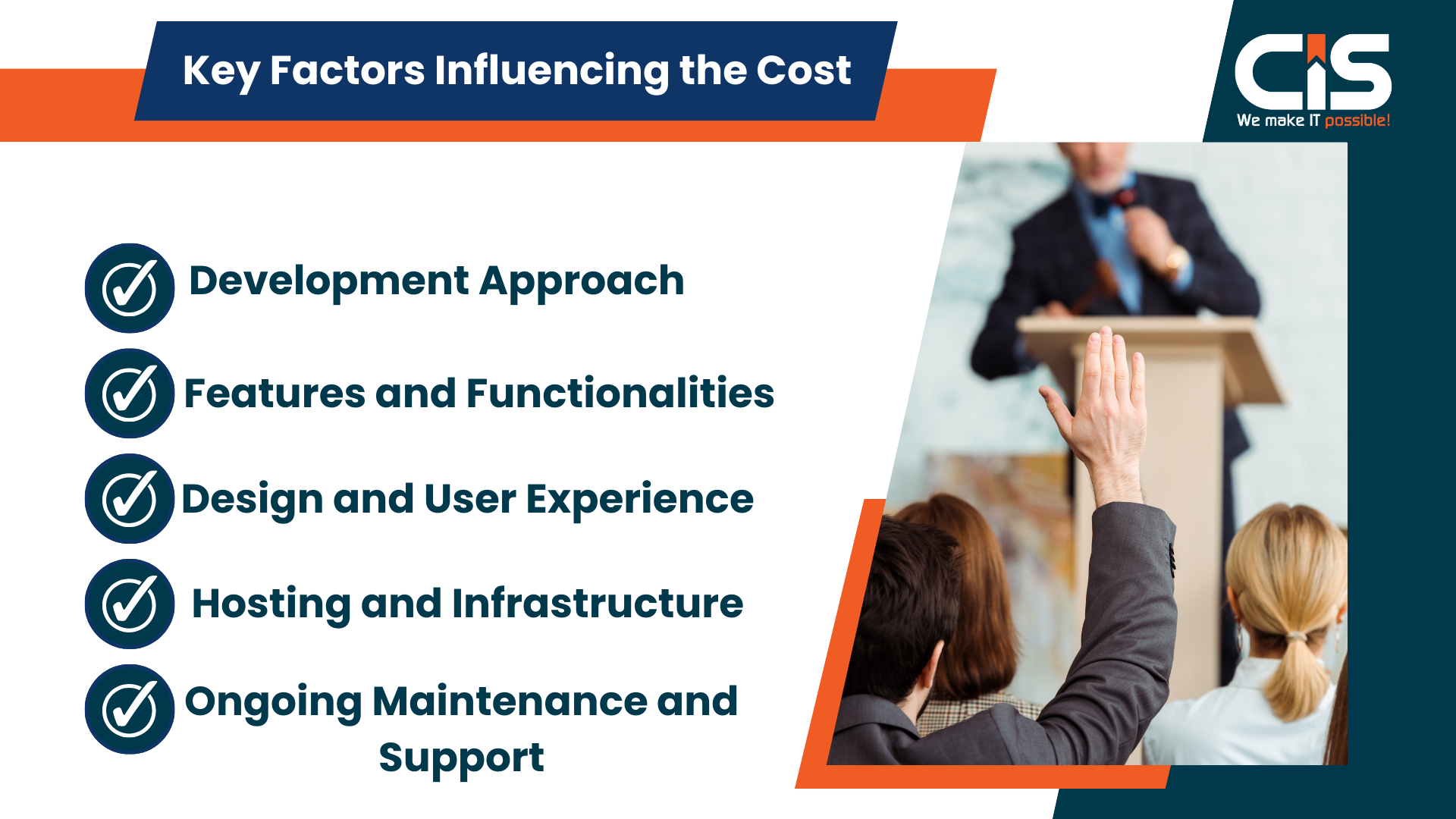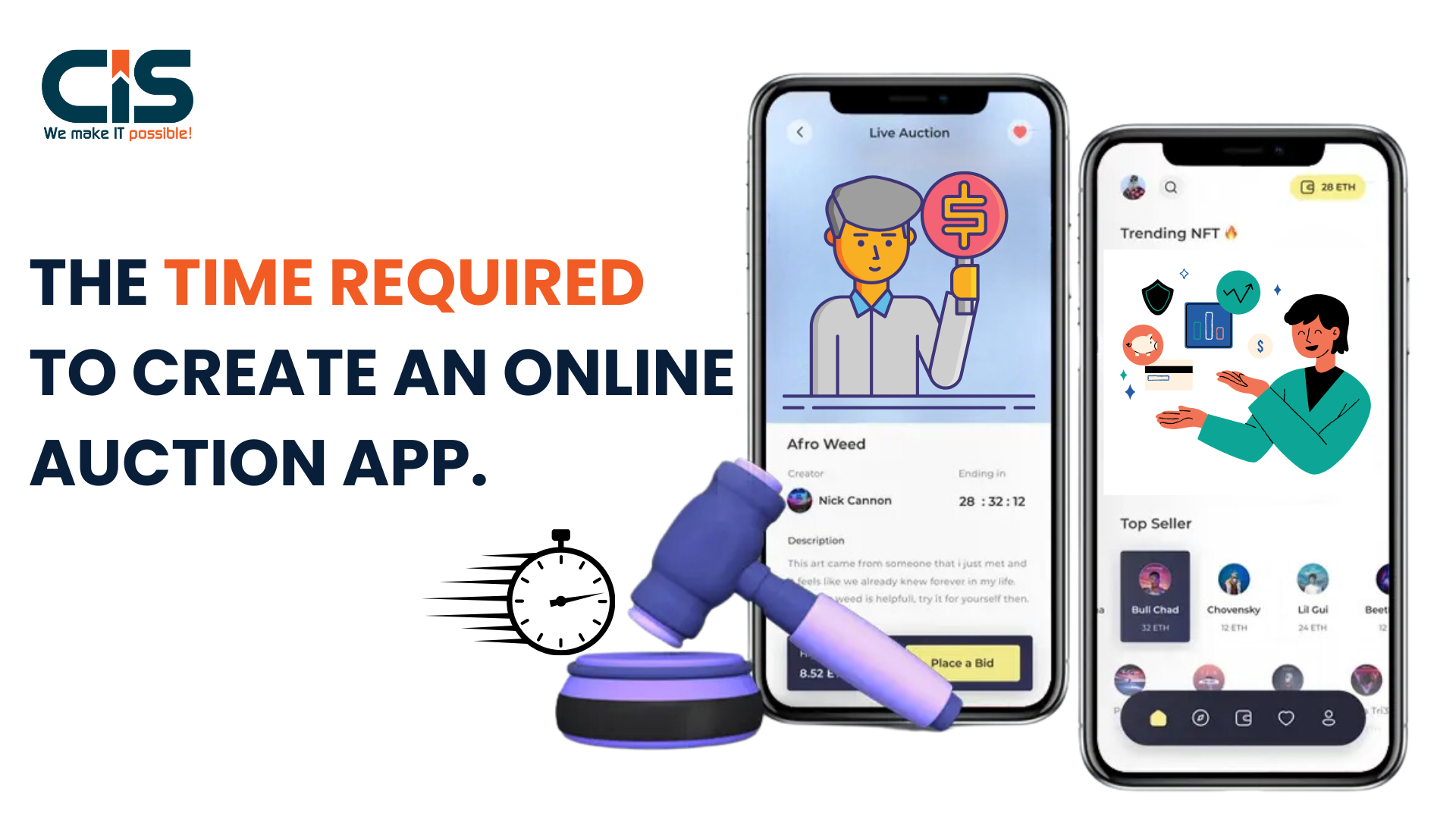Introduction:
The global market of online auctions has increased significantly, and revenue is predicted to exceed $ 38 billion in 2025. This section underlines the fact that the public shows a great interest in auction websites, which may be considered a great prospect for the back-end development of new businesses.
When one is aspiring to develop his/her online auction platform, it is a crucial step to determine the costs that are attached to the plan. Sotheby's was the auction house recording the highest sales value worldwide in 2023. That year, the company's total sales from public and private channels amounted to roughly 7.9 billion U.S. dollars.
What is an Auction Website?
An auction site is an internet site designed to contain the auction models of merchandise through bidding. Etsy also allows millions of users to bid on the item, and whoever has the highest bid when the auctioning time is out is the winner. Such platforms afford sellers the opportunity to post their items for sale where a large population of people can easily access them while the buyers stand a better chance of getting their preferred items at possibly minimum prices.
Types of Auction Websites

General Auctions
General penny auction sites are designed for the accessor-wide public because they do not limit the kind of products they have to sell. These may include gadgets, apparel and accessories, shoes, and bags, among others, and may pull in different buyers and sellers. Some of the examples are eBay and Yahoo auction bids.
Niche Auctions
Niche auction websites focus on specific categories, targeting particular interests or competitive markets. These platforms may specialize in collectibles, real estate, or unique artwork, enabling sellers to connect with buyers who are specifically interested in those items. This type offers a more tailored online shopping experience and can command higher engagement rates.
Understanding the type of english auction website you want to create will significantly influence your development costs and target market strategies.
Auction App Development and Auction Website Development
When considering auction website development cost, it's essential to evaluate both auction app development and auction website development for a comprehensive budget estimate.
Key Features for Auction Apps
- User Registration and Authentication
Secure sign-up options.
Integration with social media accounts.
- Auction Listing Management
Tools for creating and managing dutch auction listings.
Categories and filters for easy browsing.
- Bidding System
Real-time bidding with automatic updates.
Support for proxy bidding price.
- Payment Integration
Secure payment gateway integration.
Many payment options, such as digital wallets and credit/debit cards.
- Notifications and Alerts
Real-time notifications for bids and products for auction status.
Alerts for auction feature end times and winning bids.
- User Profiles and Reviews
Profiles with auction time, history and ratings.
Review system for feedback on transactions.
- Admin Dashboard
Tools for managing users, listings, and transactions.
Analytics for tracking app performance.
Key Features for Auction Websites
- Auction Listings
Detailed item descriptions and images.
Search and filter options.
- Bidding Functionality
Live bidding interface.
Auto-bid and reserve price options.
- User Accounts
Easy registration and login.
Dashboard for managing bids and auction items.
- Payment Processing
Integration with secure payment gateways.
Support for various payment methods.
- Communication Tools
Messaging system between buyers and sellers.
Support for dispute resolution.
- Admin Panel
Tools for managing online auction software, users, and payments.
Analytics for performance tracking.
Why Build an Online Auction Website?

Online auction sites are commonly used more and more due to their closer advantages for participants in the auction. Understanding the cost of building an auction website is crucial when considering why to build an online auction website. Here's why creating one could be a strategic move:
1. Growing Market Demand
- E-commerce Boom: The global market for online auctions is expected to amount to $ 6. 3 billion by 2026 because of the increasing popularity of technology-enhanced e-commerce.
- Consumer Preferences: Buyers are attracted to online auctions with the view to finding the best deals as well as the unique product quantity they need, while on the seller's side, they get a broad market and good prices.
2. Revenue Potential
- Commission Fees: Take a commission of a particular percentage of the product from the sellers.
- Listing Fees: Use listing fees to charge the sellers for listing an item, per-item charge, or on a monthly, bi-monthly, or yearly basis.
- Premium Features: Gather additional revenue for prioritized or focused advertisement postings.
3. Scalability
- Low Overhead Costs: The opportunity to organize auctions is also different from the physical sale of goods since there is no need for premises and employees.
- Global Reach: Have a remedy for the shortcoming of location-based selling, expand customer reach, work around the clock, and boost total sales.
4. Enhanced User Experience
- Convenience: There are no geographical restraints or time constraints to the auctions since users can execute them from any place on earth and at any time of their convenience from any device of their choice.
- Advanced Features: Enhance user participation through features such as automated bidding, the option to have live auctions, and real-time notifications.
5. Competitive Edge
- Unique Offerings: One should develop sufficient strategies in points to distinguish his site from competitors. Therefore, it is possible to intensify in focus areas or unique range of products.
- Data Insights: Use analytical tools to monitor the users' activity, improve the positioning of the listings, and adapt the marketing strategy.
6. Marketing Opportunities
- SEO Benefits: These are focused on fine-tuning the listings and the content for the organic traffic.
- Social Media Integration: Advertise through social platforms to create awareness on auctions and also interact with the users.
7. Community Building
- User Interaction: Provide channels of communication such as message boards in order to build community trust.
- Feedback Systems: To better credibility the company should incorporate the rating and review features in order to attract more customer service and make them loyal.
Why Should Business Invest In Auction App Development?
Investing in auction app development can provide significant benefits for businesses. Here's why:
1. Growing Market Demand
Online Auction Market Size: The global online auction market was valued at $9.4 billion in 2023 and is expected to grow at a compound annual growth rate (CAGR) of 7.6% through 2030.
Increased Consumer Preference: Consumers are increasingly turning to online platforms for auctioning goods, driven by convenience and access to a wider range of items.
2. Revenue Generation
Transaction Fees: Auction apps typically earn revenue through transaction fees on each successful sale.
Premium Listings: Businesses can charge sellers for premium placement or visibility of their auction items.
Advertising Opportunities: In-app advertising offers another revenue stream by partnering with brands or services that target the app's user base.
3. Enhanced Customer Engagement
Real-Time Bidding: Auction apps provide real-time bidding, creating a dynamic and engaging experience for users.
User Analytics: Apps collect valuable data on user behavior, helping businesses understand customer preferences and tailor their marketing strategies.
4. Competitive Advantage
Market Differentiation: A well-designed auction app can set a business apart from competitors by offering unique features or a superior user experience.
Brand Loyalty: Providing a seamless and engaging auction experience can build brand loyalty and attract repeat customers.
5. Global Reach
Scalability: Online auction apps can reach a global audience, expanding market opportunities beyond local or regional boundaries.
Diverse Inventory: Businesses can showcase a wide range of products, attracting a broad spectrum of buyers and sellers.
6. Cost Efficiency
Lower Overheads: Running an online auction platform reduces the need for physical space and inventory management, leading to lower operational costs.
Automation: Features like automated bidding and payment processing streamline operations and reduce manual labor.
7. Technological Advancements
Innovative Features: Modern auction apps can integrate advanced technologies such as artificial intelligence for personalized recommendations and blockchain for secure transactions.
Continuous Improvement: Investing in app development allows businesses to stay current with technological advancements and consumer trends.
Key Factors Influencing the Cost

1. Development Approach
The approach you choose for development plays a critical role in determining your overall costs. The cost to build an auction website varies significantly depending on the development approach.
- Custom Development: Building an auction website from the ground up usually comes with a higher price tag. This option allows for full control over design, features, and auction functionality tailored to your specific needs.
- Template-Based Development: Opting for pre-built templates can lead to significant savings. This approach simplifies the process and reduces the time required for development, making it a budget-friendly choice for many startups.
Understanding these options will help you align your budget with your online auction business objectives.
2. Features and Functionalities
The success of an auction website is heavily influenced by its features. A study found that user-friendly platforms have significantly higher engagement rates.
Essential features for your auction website should include:
- User Registration and Profiles: This allows users to create accounts to manage bids, track purchases, and communicate with sellers.
- Bidding System: Incorporate both live bidding and proxy bidding options to enhance user experience and competitiveness.
- Payment Integration: Seamless payment processing is crucial for buyer confidence. Provide a variety of payment methods to accommodate varying inclinations.
- Search and Filtering Options: Robust search functionality, including filters for categories and price ranges, helps users find what they are looking for quickly.
- Auction Timers: Display countdown timers for each auction to create urgency and encourage bidding activity.
- Admin Dashboard and Reporting Tools: A comprehensive administrative interface helps site managers track performance, manage item listings, and analyze user behavior.
Investing in these features can significantly increase user satisfaction and retention, ultimately affecting your website's success.
3. Design and User Experience
According to a Forrester Research research, conversion rates might rise by as much as 200% when a user interface is done correctly. The cost to build an auction website is heavily influenced by the design and user experience.
In the competitive world of online auctions, your website's design directly impacts user engagement.
Several factors contribute to the overall costs associated with creating an appealing and functional design:
- UI/UX Design: Hiring professional designers to create an intuitive interface can significantly enhance user satisfaction.
- Mobile Responsiveness: With over 50% of web traffic coming from mobile devices, ensuring your site is mobile-friendly is essential. This can add to your design expenses but pays off through increased user retention.
- Branding Elements: Distinctive branding, including logos, color schemes, and typography, fosters trust and recognition. Investing in standout branding helps differentiate your site from competitors.
Balancing design quality with cost is crucial for developing an auction website that attracts and retains users.
Read More: Ready to Launch Your Own eBay? Discover the Cost and Features Needed for a Successful Website!
4. Hosting and Infrastructure
In 2023, over 70% of website performance issues can be attributed to hosting quality. Choosing the right hosting solution is critical for your auction website's success.
The costs associated with hosting can vary significantly depending on a few key factors:
- Shared Hosting vs. Dedicated Servers: Shared hosting is more affordable but can lead to slower load times during peak traffic. Dedicated servers, while pricier, offer better performance and reliability.
- Security Measures: Implementing SSL certificates is essential for securing transactions. The cost of SSL can range from free to about $300 per year, depending on your requirements.
- Data Backup and Recovery Systems: Regular backups are vital to prevent data loss. Many hosting providers include this in their plans, but advanced solutions may incur additional fees.
Investing in a robust hosting infrastructure can enhance speed and security, ultimately improving user satisfaction and retention on your auction website.
5. Ongoing Maintenance and Support
In the fast-paced world of online auctions, ongoing maintenance is essential. The cost of auction website development includes initial expenses and the ongoing maintenance and support necessary to keep the platform running smoothly.
Regular updates and prompt customer support ensure a seamless user experience. This aspect of the website comes with important costs, including:
- Technical Support: Having a dedicated house team to resolve issues is crucial for user satisfaction.
- Software Updates: Frequent updates prevent security vulnerabilities and enhance functionality.
- Server Maintenance: Keeping servers optimized guarantees fast loading times and high uptime.
These components collectively contribute to the long-term success and reliability of your auction platform.
Estimated Cost Breakdown
A well-designed auction website can significantly impact user engagement and sales. Understanding the cost breakdown is essential for effective budgeting.
1. Initial Development Costs
Custom Development: For a fully tailored auction website, expect to invest between $10,000 and $50,000 or more. This option allows for unique functionality and design that meets your specific needs.
Template-Based Solutions: If you're looking for a more affordable route, template-based solutions range from $1,000 to $10,000. While these solutions offer quicker setups, customization options may be limited.
Choosing between custom development and templates hinges on your budget and specific requirements.
2. Monthly Operating Costs
Building an auction website is not just about the initial investment. Monthly operating costs are crucial for keeping your platform running smoothly.
Hosting Costs: Depending on your website's size and traffic, hosting can range from $20 to $500 per month. Shared hosting is more affordable, while dedicated servers or cloud hosting options may increase expenses.
Maintenance Fees: Regular maintenance is vital for performance and security. Expect to pay between $100 and $1,000+ monthly, depending on the level of support and basic features you require.
Marketing Budget: Marketing costs vary greatly based on your strategies. Whether you focus on SEO, social media, or paid advertising, budget carefully, as expenses can quickly add up.
In summary, monitoring these monthly expenses will help you maintain a successful auction platform while ensuring sustainability.
3. Domain Registration
When establishing an auction website, securing a domain name is essential. Annual domain registration fees generally range from $10 to $50. The cost often depends on the popularity and uniqueness of the domain name you choose.
Common domain extensions like .com tend to be more affordable, while niche extensions might carry a premium. It's vital to select a domain that reflects your brand and is easy for users to remember.
4. Payment Gateway
In 2023, the global online marketplace payments market was valued at over $4 trillion, underscoring the importance of reliable payment gateways for auction websites.
A payment gateway is crucial for processing transactions securely. This component is vital to building trust with your users, as it handles sensitive financial transactions information.
Costs of Payment Gateways
Setting up a payment gateway can vary widely in cost. Most reputable providers charge a transaction fee, typically ranging from 2% to 5% per sale.
Additionally, some may have monthly fees that can range from $0 to $30. When selecting a payment gateway, consider factors like user experience, security features, and compatibility with your site.
It's essential to factor these costs into your overall budget for a seamless purchasing experience on your auction platform.
Popular Payment Gateways
Some of the leading payment gateways include PayPal, Stripe, and Square.
These platforms offer different features and fee structures, making it crucial to evaluate which best fits your auction site needs.
Opting for a well-known payment gateway not only simplifies the transaction process but also enhances user trust, increasing the likelihood of successful bids and sales.
Additional Considerations
Before launching your auction website, there are several important factors to consider that could impact your project management success.
1. Legal Compliance
In 2023, the digital marketplace industry faced increased scrutiny regarding legal compliance.
- Consumer Protection Laws: Be familiar with rules in your jurisdiction to protect bidders and sellers.
- Privacy Regulations: Ensure your site abides by laws like GDPR or CCPA for data protection.
- Licensing Requirements: Check if you need specific licenses to operate your auction platform.
Understanding and adhering to these laws will help you avoid potential legal issues down the road.
2. Marketing and SEO
Effective marketing is pivotal for the success of your auction website.
- Budget for Marketing Tools: Set aside a budget for tools like Google Ads, social media promotions, and email marketing.
-
Focus on SEO:Optimize your website to rank higher in search engine results.
- Conduct keyword research and incorporate pertinent terms into your writing.
- Content Strategy: Create valuable content to attract visitors, such as auction step guides or tips.
- Monitor Analytics: Use tools like Google Analytics to track your marketing performance.
Investing in these strategies will enhance your website's visibility and drive user engagement.
3. Monetization Strategies
A clear monetization strategy can significantly affect your auction site's revenue.
- Listing Fees: Charge sellers for listing their cart items.
- Commission on Sales: Take a percentage from each successful sale on your platform.
- Premium Memberships: Offer exclusive features for a membership fee, such as enhanced visibility or additional bidding options.
Selecting the right combination of these strategies will help establish sustainable income for your auction site.
By accounting for these additional considerations, you lay a solid foundation for building a successful and legally compliant auction platform.
How Long Does it Take to Build an Online Auction App?

Building an online auction app requires careful planning and execution. On average, the development timeline can vary significantly based on several factors.
Industry Insights
- Market Growth: The online auction industry is projected to reach $6.3 billion by 2025.
- User Demand: Over 50% of consumers prefer online marketplace for convenience and wide variety.
Understanding these trends can help you gauge the competitive landscape for your auction app.
Development Timeframe Overview
The total time to build an auction app typically ranges from 3 to 9 months, depending on the complexity and additional features of the app. Here's a breakdown of the development phases:
Development Phase
Estimated Time
Purpose
Planning
2-4 weeks
Define goals and requirements
Design
4-6 weeks
Create user interface and experience
Development
8-16 weeks
Actual coding and functionality integration
Testing
2-4 weeks
Identify and fix bugs, ensure usability
Launch
1-2 weeks
Deploy app to app stores and go live
Key Factors Influencing Development Time
- Complexity of Features:
Basic auctions might take less time.
Advanced features (real-time bidding, live streaming) require more time for development.
- Team Size:
- A larger development team may accelerate the process.
Consistency in communication is critical to streamlining efforts.
- Technology Stack:
The choice of programming languages and frameworks can impact development speed.
Familiarity with tools can speed up the design process.
- Testing Requirements:
More comprehensive rigorous testing phases can extend timelines.
User feedback during security testing can lead to iterations.
How to Successfully Grow Your Online Auction Application
The online auction industry has witnessed a staggering growth of 15% annually. By capitalizing on this trend, you can expand your auction website effectively. In 2023, the sales value at public auctions of art and antiques worldwide totaled around 25 billion U.S. dollars
Key Strategies for Growth
- Understand Your Audience
To determine your target demographic, do market research.
Collect user feedback to improve features and services.
- Optimize User Experience
Ensure your website is mobile-friendly.
Streamline the registration and bidding process for ease of use.
- Implement Strong Marketing Tactics
Utilize social media platforms to engage users.
To be more visible in search engine results, spend money on SEO.
Consider pay-per-click advertising for immediate exposure.
- Leverage Technology
Use chatbots for customer service to cater to users around the clock.
Incorporate real-time bidding features to enhance user engagement.
- Build Trust and Security
Clearly display security measures, such as encryption.
Offer buyer protection guarantees to reassure users.
- Introduce Unique Features
Consider adding live auctions or reserve prices to attract more users.
Implement loyalty programs or referral bonuses for user retention.
Monitor and Adapt
- Analyze Performance Metrics
Track user engagement rates and conversion statistics.
Adjust strategies based on performance data to stay competitive.
- Stay Updated with Trends
Keep an eye on emerging technologies and auction trends.
Adapt your platform to meet changing user expectations.
Want More Information About Our Services? Talk to Our Consultants!
Conclusion
Building an auction website can be an exciting yet complex endeavor that involves various factors contributing to the total cost. As discussed, expenses can range from as low as a few thousand dollars for a basic platform to tens of thousands for a feature-rich, highly customized solution.
Critical design elements such as design, development, payment integration, marketing, and ongoing maintenance can significantly affect your budget. Therefore, it's essential to conduct thorough research, define your target audience, and identify the key features that will make your auction site stand out.
By understanding these components and planning accordingly, you can better estimate the costs associated with creating a successful auction website. If you're considering starting your own auction platform, our team at CISIN is here to help. We specialize in developing user-friendly, scalable auction websites tailored to your unique needs.


